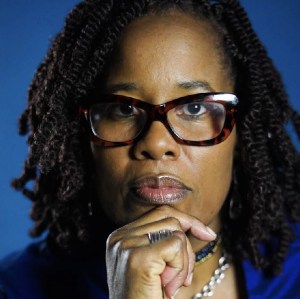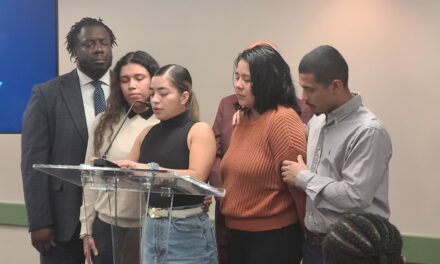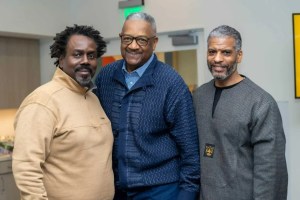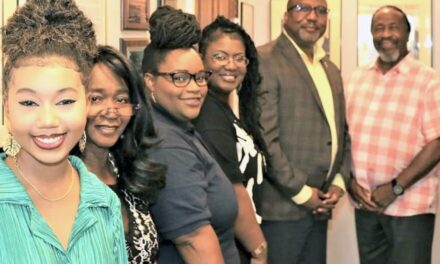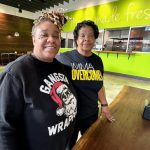
By Dr. Kaye Whitehead
As a Black mother, it is not enough to dream of a world where your children are safe and where they can be free. It is not enough to trust that the system will police itself or believe that without rigorous oversight, police officers or politicians or teachers will look at your Black son or daughter and assume the best and not conclude the worse. Black mothering is a long act of courage. I cannot be the only Black woman who cried when I realized that I was bringing a man-child into this world. I know that I am not the only Black mother who spent hours while my sons were growing up, trying to think of how I could keep them safe. I worried while they were in elementary school, attending a private school where my oldest was the only African-American boy in his grade, and my youngest was one of four. I listened carefully as they described their day, their interactions with their teachers and other students. I listened with a Black mother’s ear for the subtle moments of racial microaggressions that happened when they were overlooked or when they were singled out. I spent more days at that school and more nights than I can remember standing at their door, praying over them, watching over them, and sometimes crying over them. I worried while they were in middle school, where my oldest was now one of two, and my youngest, who had moved to an inner-city predominantly Black school, was now struggling with trying to fit into a world that was new to him. I listened with a Black mother’s ear as my youngest described daily bathroom fights, confrontations in the hallway and standing still while a Black teacher threatened to slap him with all that she had in her. I started every day with a meeting with the principal as I worked to find him a new school.
I worried more while they were in high school because they were bigger and older and because, as young Black men, they were seen as threats. Even though we are in Baltimore, White supremacy is a rhizomorph, a black shoestring filament buried so deep within the American soil that it is tied to the roots of this country. It is a dark beast that exists even within the brightest spaces. It is why we march, why we protest and why Black mothers are the bridges that carry our children over. I worked. I watched. And I worried. I wanted to get them through school and get them to college. I know that that is not the end, but it is a different beginning. When my father dropped me off at college, he gave me an empty box and told me that it was full of their (my parents) prayers and tears, hopes, and dreams. He said that whenever I had a problem believing in myself or whenever I did not think I was going to make it, I should take a look at the box and remember that I am living the life that my grandparents wanted me to have, the life that they wished they could have had. Two years ago, my husband and I “gave” that box to our oldest son, and two weeks ago, we gave it to our youngest. They are the best of what we have to offer the world, and they are the hope and the dreams of our enslaved ancestors.
Before I left him on campus, my son asked me to leave him with a word, something that he could chew on and that would make him think. He wanted a word that could also be a goal. I gave him freedom because freedom is a whole word. It is a word rooted in action, a word rooted in love, and as I so often told my sons, it is a word rooted in both sacrifice and death. For freedom to live, oppression has to die, and White supremacy must be in a body bag right next to it. For freedom to survive and grow, we must plant commitment and sacrifice right beside it. I grew up having conversations with my father about freedom and what it meant to demand, not ask, for it. I used to hear him arguing with his friends about what freedom meant and whether they had what it would take to make freedom real. “Are you willing to die so that others can be free,” he would say, “because if you are in this only so that you can be free, then it will never happen.” Freedom, as Malcolm X once said, ain’t free. And freedom, according to Coretta Scott King, is never really won; you earn it and win it in every generation. And freedom, as Dr. King reminded us, is never given voluntarily by the oppressor; it must be demanded by the oppressed. I left him with freedom, similar to how Mary McLeod Bethune left us with love and hope and a thirst for education. My job was to leave him with freedom, and his job over the next four years is to figure out how to get it. Audre Lorde once wrote that it is your dreams that point the way to freedom. I believe that my ancestors dreamed of freedom, of equal access, and of providing a path so that their children could become the best of who they are, those dreams long planted began to germinate when my father went to college; they began to sprout when I went, and now, through my sons, those dreams are starting to bloom and blossom.
Karsonya Wise Whitehead (todaywithdrkaye@gmail.com; Twitter: @kayewhitehead) is the Director of The Karson Institute for Race, Peace, and Social Justice and an associate professor of African and African American studies at Loyola University Maryland. She is the award-winning host of “Today With Dr. Kaye” on WEAA 88.9 FM. A recent empty nester, she lives in Baltimore City with her husband and their dog, BellaReds.
The opinions on this page are those of the writers and not necessarily those of the AFRO. Send letters to The Afro-American • 145 W. Ostend Street Ste 600, Office #536, Baltimore, MD 21230 or fax to 1-877-570-9297 or e-mail to editor@afro.com
Help us Continue to tell OUR Story and join the AFRO family as a member – subscribers are now members! Join here!
The post For a Black mother, freedom is a whole word appeared first on AFRO American Newspapers .

